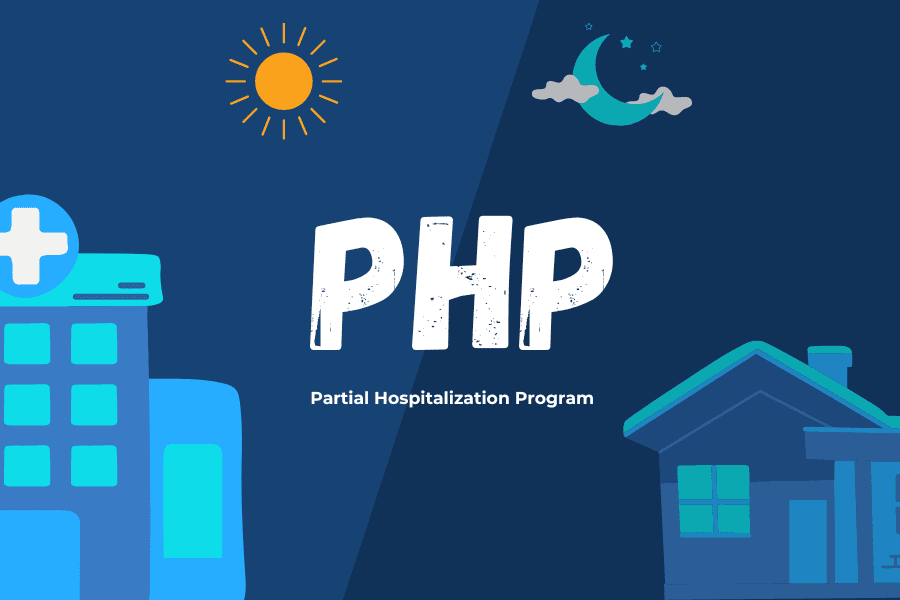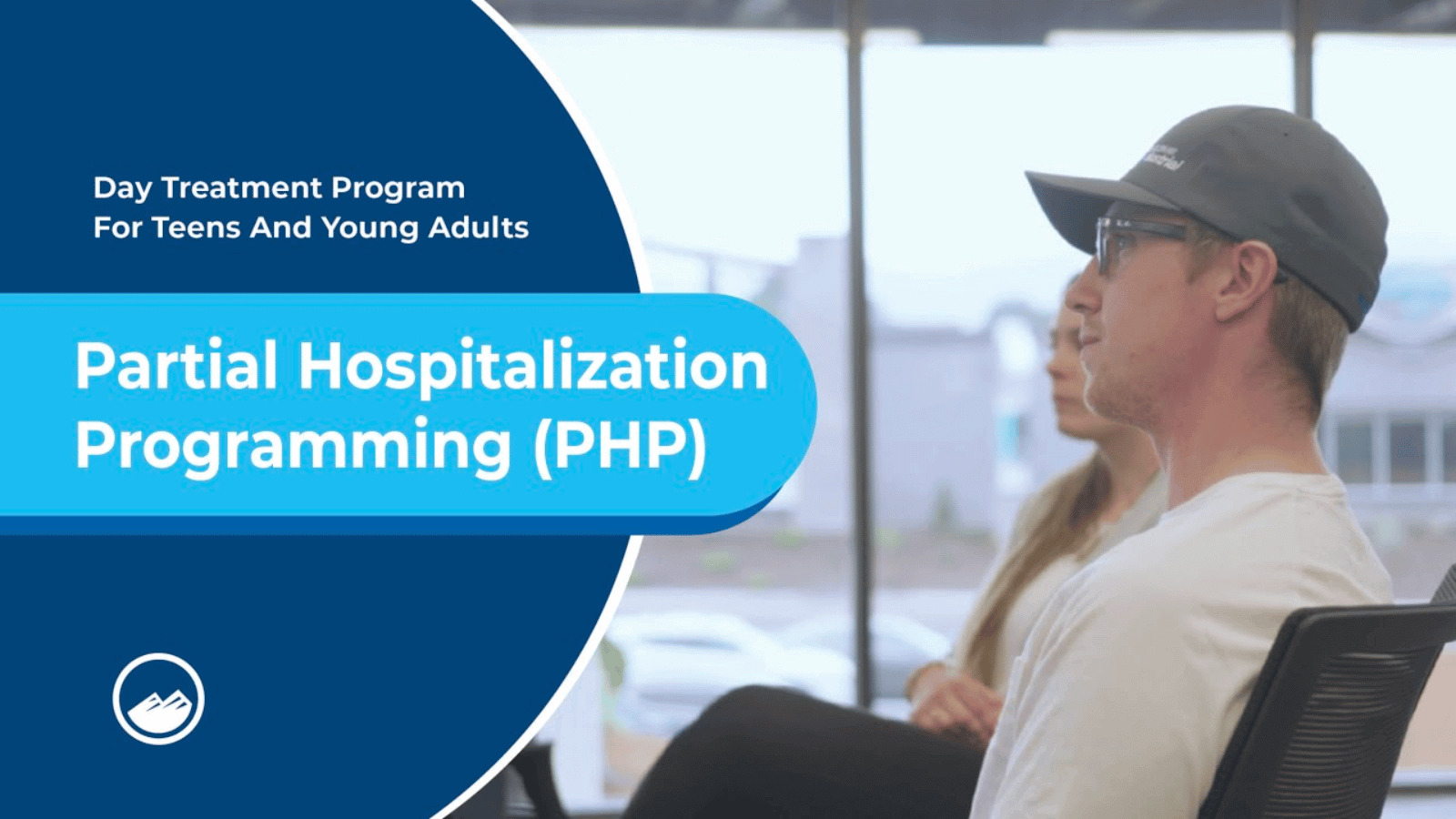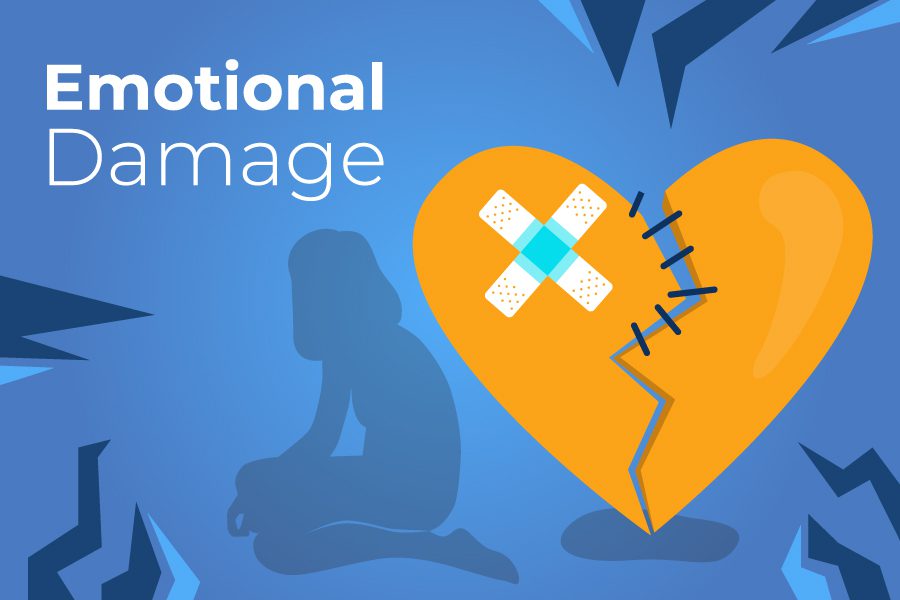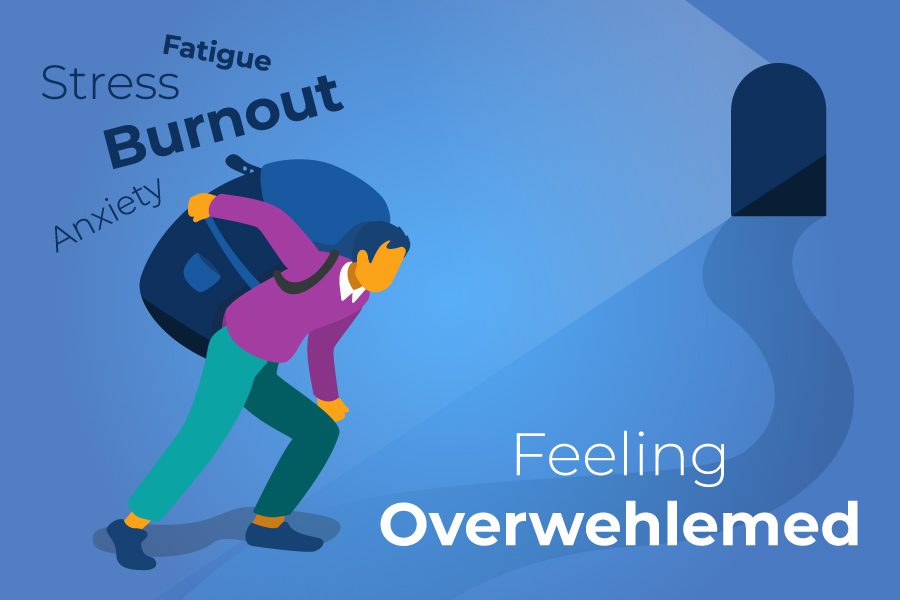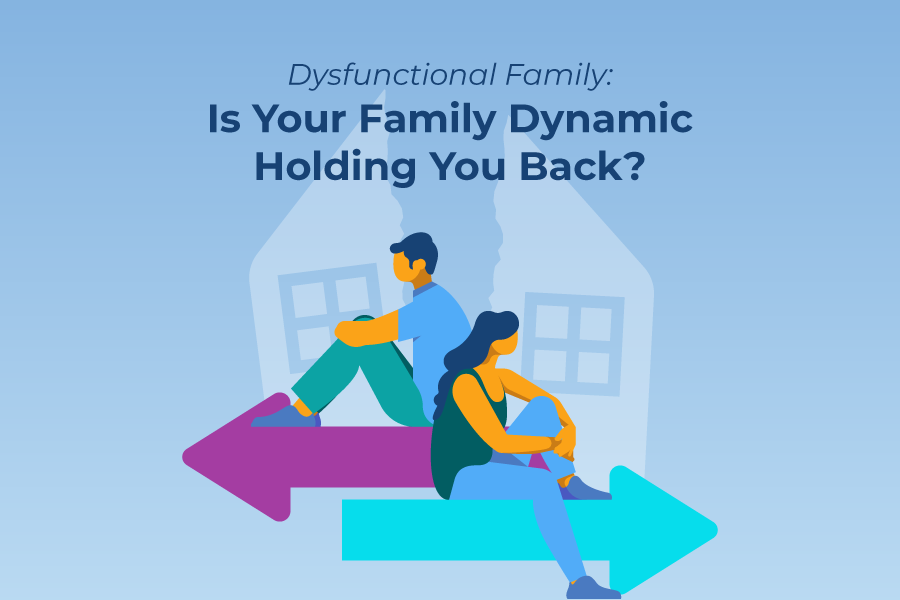What Is PHP With Mental Health?
Taking care of your mental health is important for every aspect of your well-being.
According to the CDC, more than 50% of people in the U.S. will be diagnosed with a mental illness or disorder.
However, getting help for mental health illnesses and disorders can feel overwhelming, and it can be difficult to know where to start or get help.
The National Institute of Mental Health reported that in 2020, among 52.9 million people in the U.S., 46.2% received mental health services in the past year.
When it comes to mental health treatment, there are so many options, and it is important to find the one that is most suitable for you or your loved one.
Talking about mental health treatment is important because you never know who may need the help. Treatment can help you or your loved ones live a healthy, positive life without feeling that their mental health conditions define them.
Levels of care when it comes to mental health treatment start from the highest being residential treatment, then Partial Hospitalization Program, Intensive Outpatient, and Outpatient.
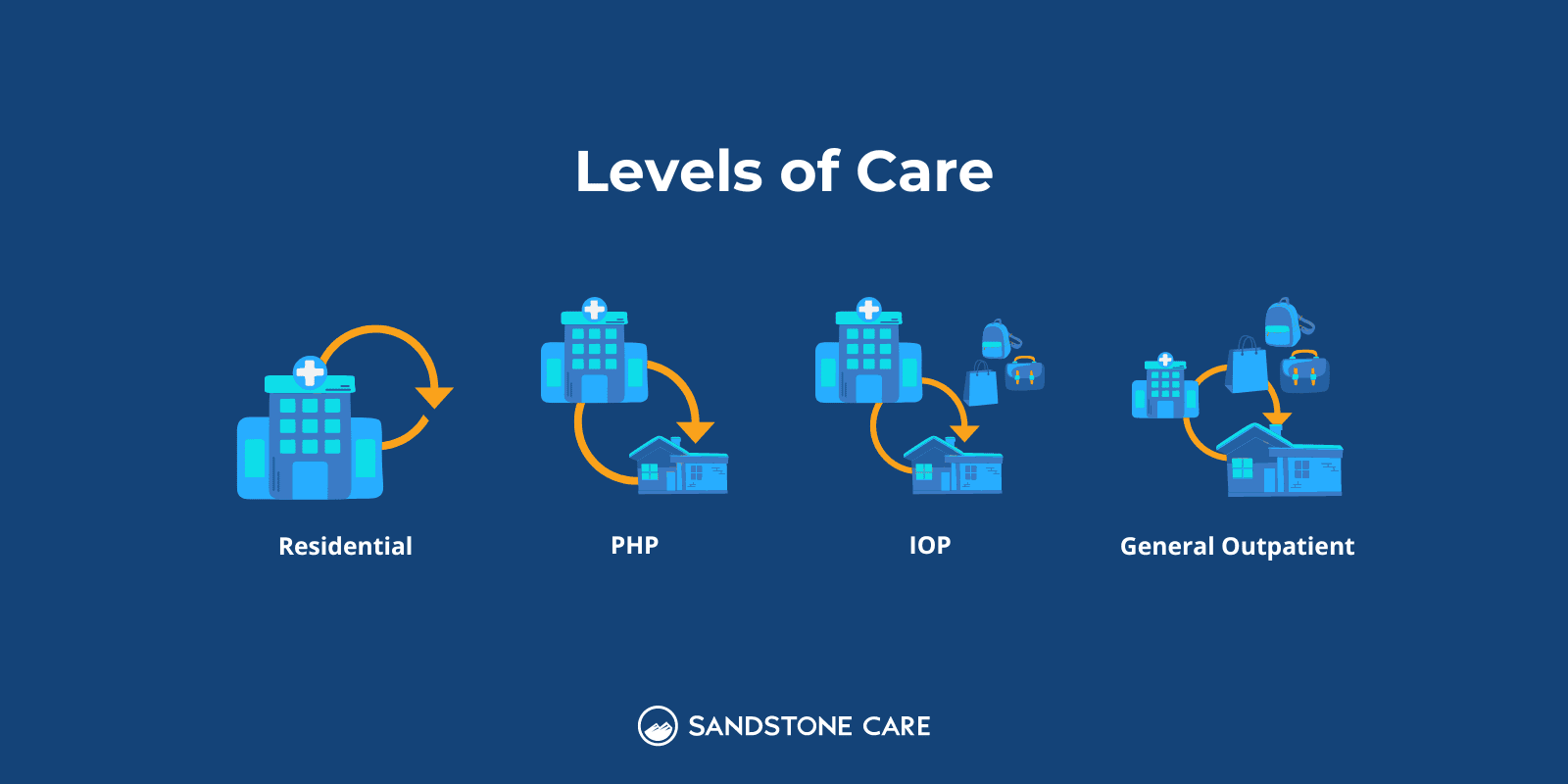
A Partial Hospitalization Program (PHP), also referred to as Day Treatment, is a mental health treatment program that provides a high level of structure and support.
PHP and day treatment programs offer intensive therapy and strong support through a diverse team of mental health professionals.
A good PHP offers an in-depth curriculum to promote an integrated approach that focuses on an individual’s physical, emotional, and mental health and well-being.
PHP is a level of care above Intensive Outpatient Programs (IOP) but is a step down from Residential or Inpatient treatment.
PHP is generally around 25 hours weekly, usually 5 days a week, but scheduling can vary based on the treatment center. When a person completes a day treatment program, they often step down to IOP, which typically involves about 16 hours of weekly programming.
Day treatment programs can be extremely beneficial for individuals struggling with mental disorders or illnesses but who do not need 24-hour care.

What Can I Expect From A Day Treatment Program?
PHP programs often vary; however, they generally involve:
- Individuals living at home or in transitional living accommodations
- The program is typically held during the day on weekdays but is sometimes held at night or on weekends
- 25 or more hours of weekly programming
- Programs typically last 4-6 weeks
- Usually involves individual therapy, group therapy, sometimes family therapy, clinical diagnosis, academic and vocational training, substance abuse counseling, medication management, and other therapies
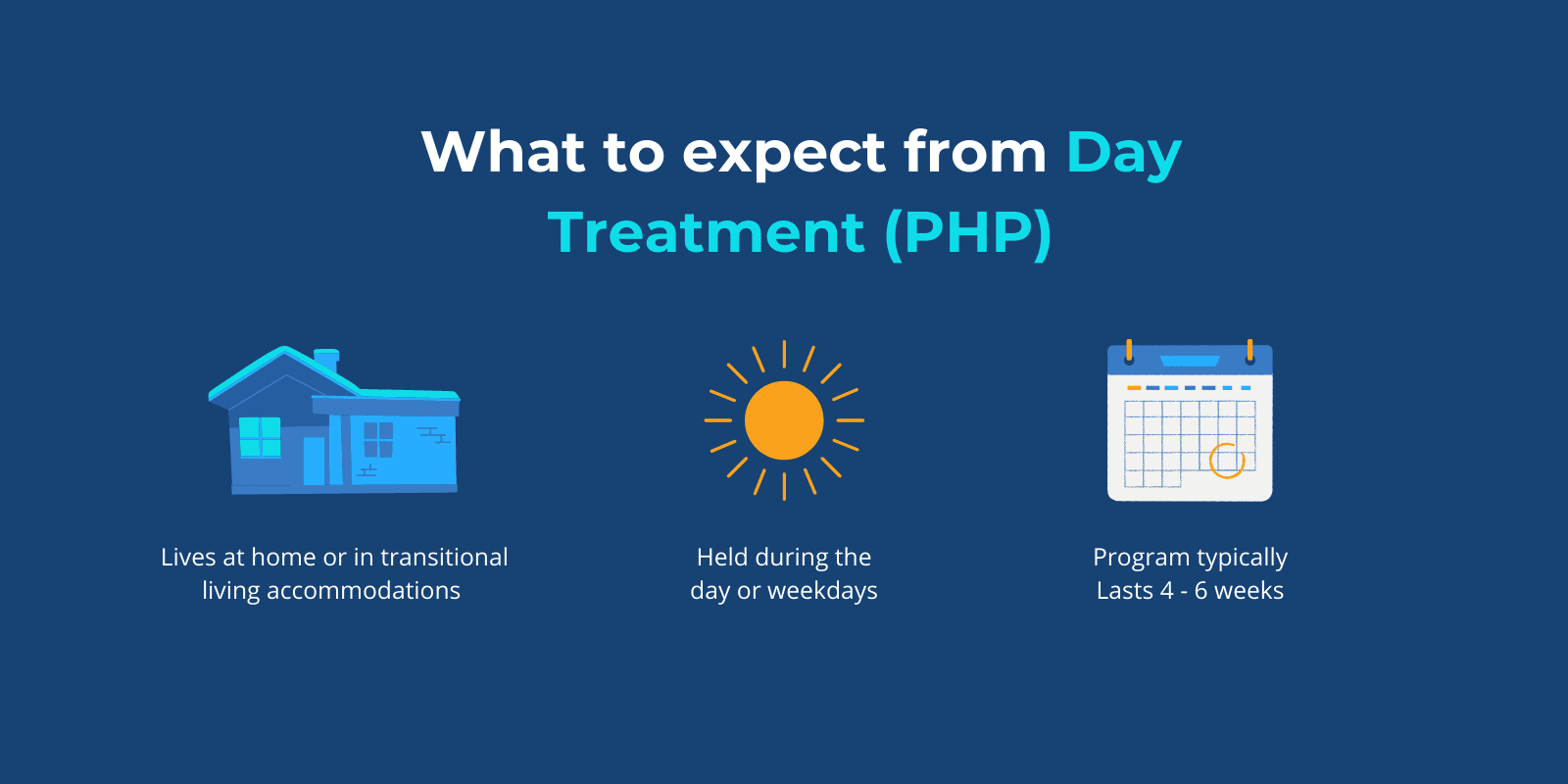
What Are The Different Mental Health Treatment Therapies?
Mental health treatment therapies can include:
- Psychotherapy
Also known as “talk therapy,” refers to a wide variety of treatment techniques that can help a person change behavior by identifying negative and unhealthy thought patterns.
Cognitive behavioral therapy (CBT) is a form of psychotherapy commonly used to treat mental health and substance use disorders. CBT refers to a number of different therapy approaches.
Dialectical behavior therapy (DBT) is another form of talk therapy used for individuals struggling with mental health. DBT focuses on four main skills: mindfulness, emotion regulation, interpersonal effectiveness, and distress tolerance.
- Group therapy
Group therapy is a common and important component of mental health treatment plans for individuals of all ages.
Group therapy can be especially beneficial for young people struggling with mental health conditions because it provides a safe space for them to go to share, relate, and learn from each other’s experiences.
- Family therapy
When one person in a family struggles with mental health, it can affect the whole family.
Family therapy’s primary goals are to build healthy communication skills, learn to problem solve, better understand one another, and create a healthy and supportive environment.
- Medication
There are a number of medications approved by the FDA to treat mental disorders such as depression, anxiety, and ADHD.
Medication can be used as a treatment on its own but is commonly combined with a form of psychotherapy.
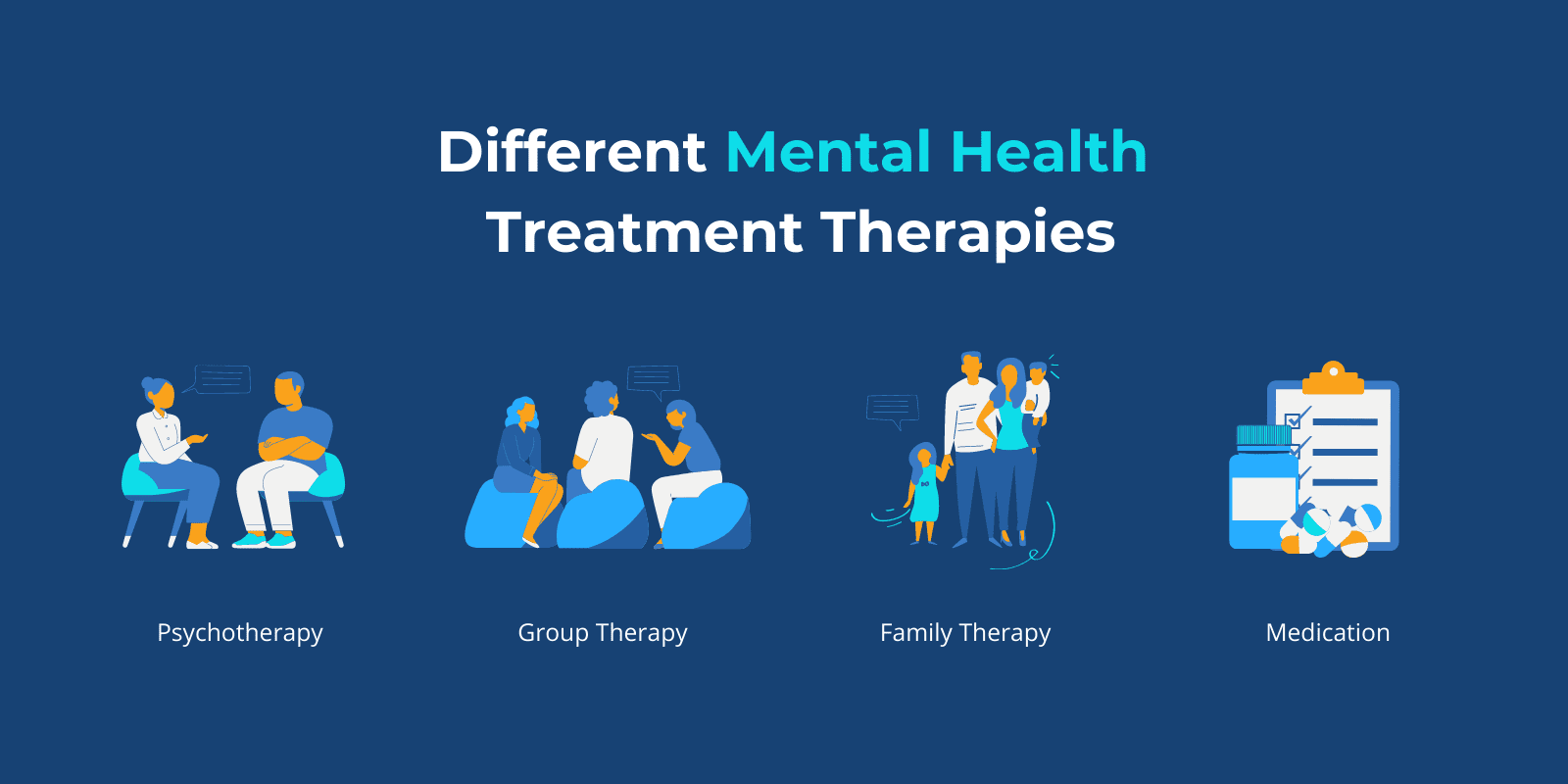
How Do I Know I Need Day Treatment For My Mental Health Condition?
PHP can be fitting for someone who has recently completed inpatient treatment, who does not need 24/7 care, and for those struggling with mental health conditions transitioning between work and school.
Someone who may need day treatment for their mental health condition could be a person who:
- Is struggling with mental health and needs a high level of structure and support
- Needs treatment for co-occurring disorders
- Symptoms of mental disorders are greatly impacting your everyday life
If you think you or a loved one may benefit from day treatment for mental health, talk to a professional so they can help guide you and develop the best treatment plan for your needs. They will perform a thorough assessment to determine the kind of care that is right for you.
What Is A PHP Assessment?
It is important for treatment teams and centers to have a thorough understanding of an individual to help determine whether their program would benefit them.
Prior to entering a Partial Hospitalization Program, a clinician or mental health professional will perform an assessment.
The assessment can help a treatment team gather necessary information such as a person’s background, history, symptoms, and stressors.
When performing an assessment, a mental health professional will sit down and ask questions that are crucial to figuring out the best course of action.
By gaining this knowledge, clinicians can help get a person where they need to be and determine if PHP is the right fit.
What Is The Difference Between A PHP Assessment And A Psychiatric Assessment?
A psychiatric assessment, or psychiatric evaluation, helps a psychiatrist gather the information they need to make a proper diagnosis.
A PHP assessment aims to understand an individual’s needs and ensure that they are receiving the most fitting treatment. In contrast, a psychiatric assessment is designed to better understand a person’s mental state.

In a psychiatric assessment, a person will be asked questions about their feelings, thoughts, behaviors, personal life, and daily activities.
Psychiatric assessments can also involve lab tests and physical exams to rule out any other medical conditions that may be causing their symptoms.
Psychiatric assessments may seem intimidating, but it is important to know that they are integral to properly diagnosing and treating mental health conditions and can greatly benefit you or your loved one in the long run.
What Are The Goals Of A PHP Mental Health Assessment?
The goals of a PHP mental health assessment include:
- Gain a better understanding of the individual and their specific needs
- Ensure that the individual is receiving the most suitable treatment
- Develop an individual treatment plan and determine if PHP is the right fit
What Are Some Benefits Of Day Treatment?
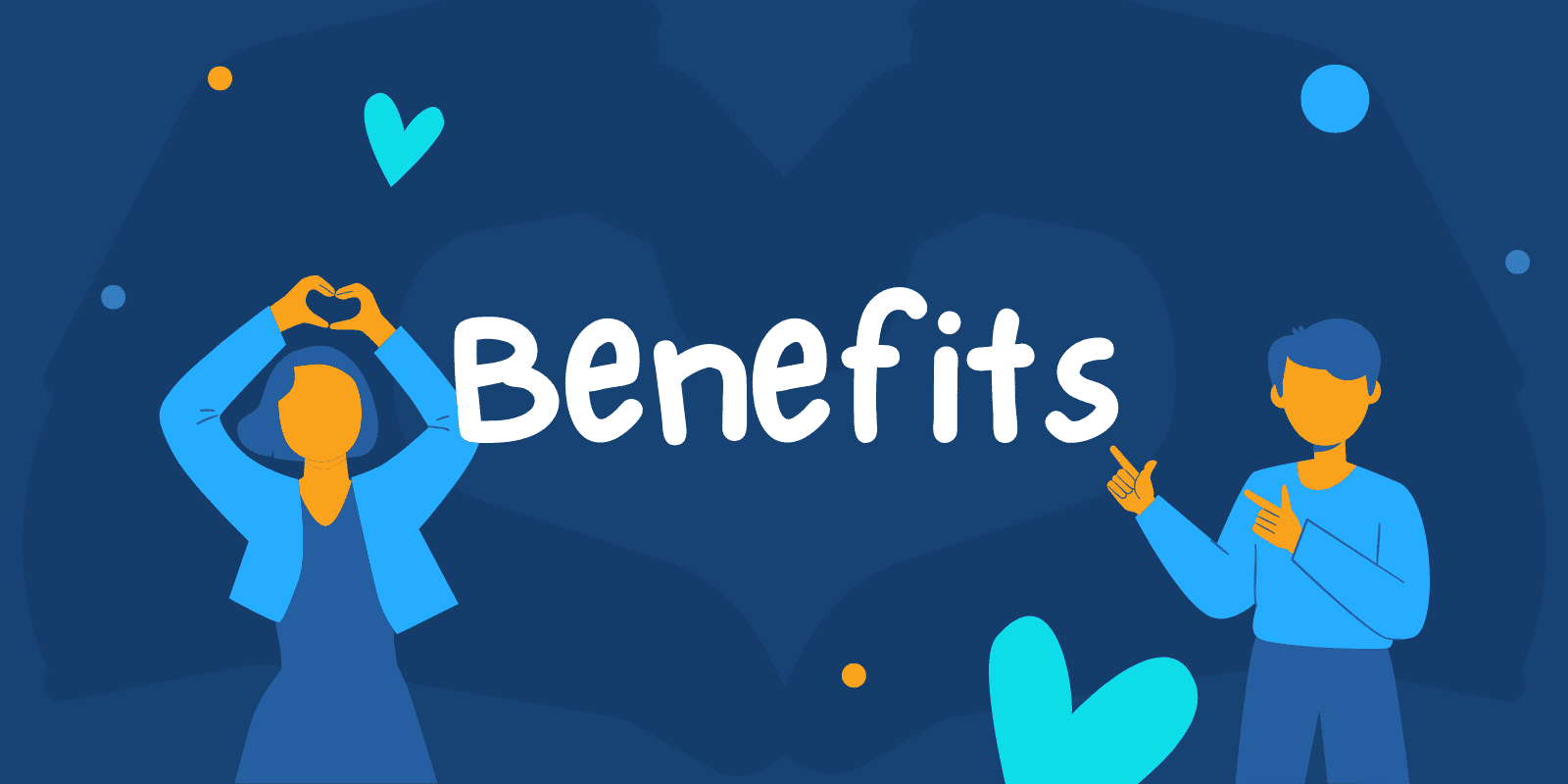
If you or a loved one are considering day treatment as an option, it is important to know the pros and cons.
One major benefit of day treatment is that you can live at home with the support of your loved ones.
Living at home while receiving treatment also allows for a great deal of family involvement. Individuals interact with their families daily and apply the skills and strategies they are learning to their life in real-time.
Being able to go home after treatment can also be helpful because they can live with some level of normal. It could include their normal routine, practice independence, and it won’t be as much of a change in environment after treatment is over compared to residential treatment.
Day treatment also offers a high level of care without the price of a residential treatment program.
Residential treatment can become costly, and day treatment can be more cost-effective without compromising care and support. Some insurance providers may also cover some of the costs of treatment.
The structure of day treatment programs allows individuals to receive thorough, in-depth, comprehensive mental health treatment and treatment for any co-occurring disorders.
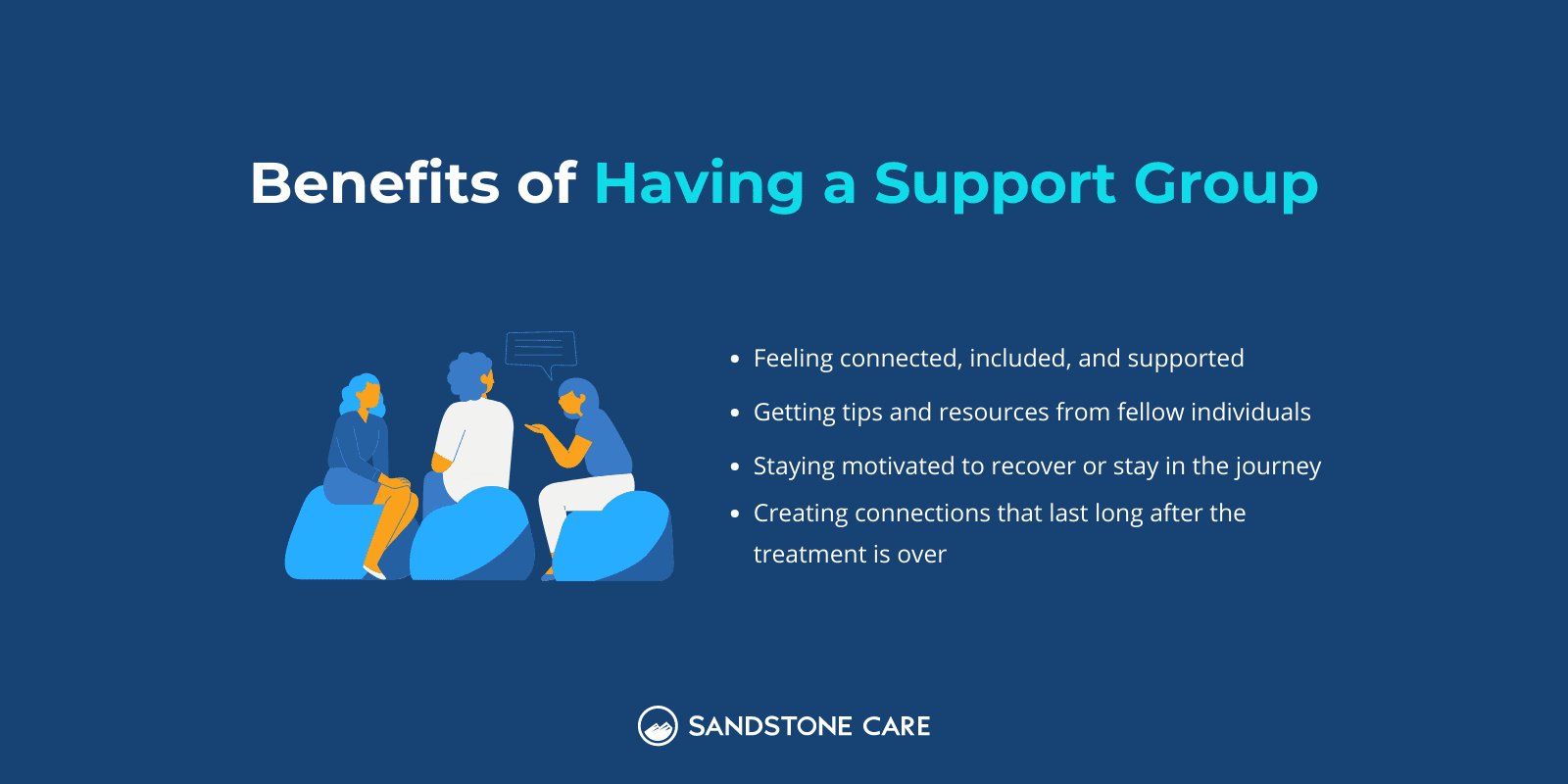
Another benefit of day treatment is the sense of community it provides. In day treatment, you will be surrounded by people who share similar struggles and goals.
Having a strong support system is an integral part of mental health treatment. Being around others who are there for you through the treatment process and who you can relate to can offer a good reminder that you are never alone.
Often, individuals find that they create connections that last long after treatment is over.
What Are Some Challenges Of PHP?
Transitioning into PHP from an inpatient program or residential treatment may seem scary.
It is important to know that your treatment team and support system are there for you every step.
Transitioning into PHP can seem new compared to residential treatment because a person now has to balance home life and commit a lot of time to treatment during the week.
Beginning a day treatment program can also be difficult because it can be a big change to withdraw from school or work to attend treatment. If this does more harm than good, it could be helpful to consider an IOP program that allows for more flexibility.
Living at home while receiving treatment can benefit some; however, others may experience conflict at home or unhealthy living environments, which can make treatment extremely difficult.
If that is the case, residential care may be more suitable, but there are other options like recovery living that you can combine with day treatment.
IOP Vs. PHP In Mental Health
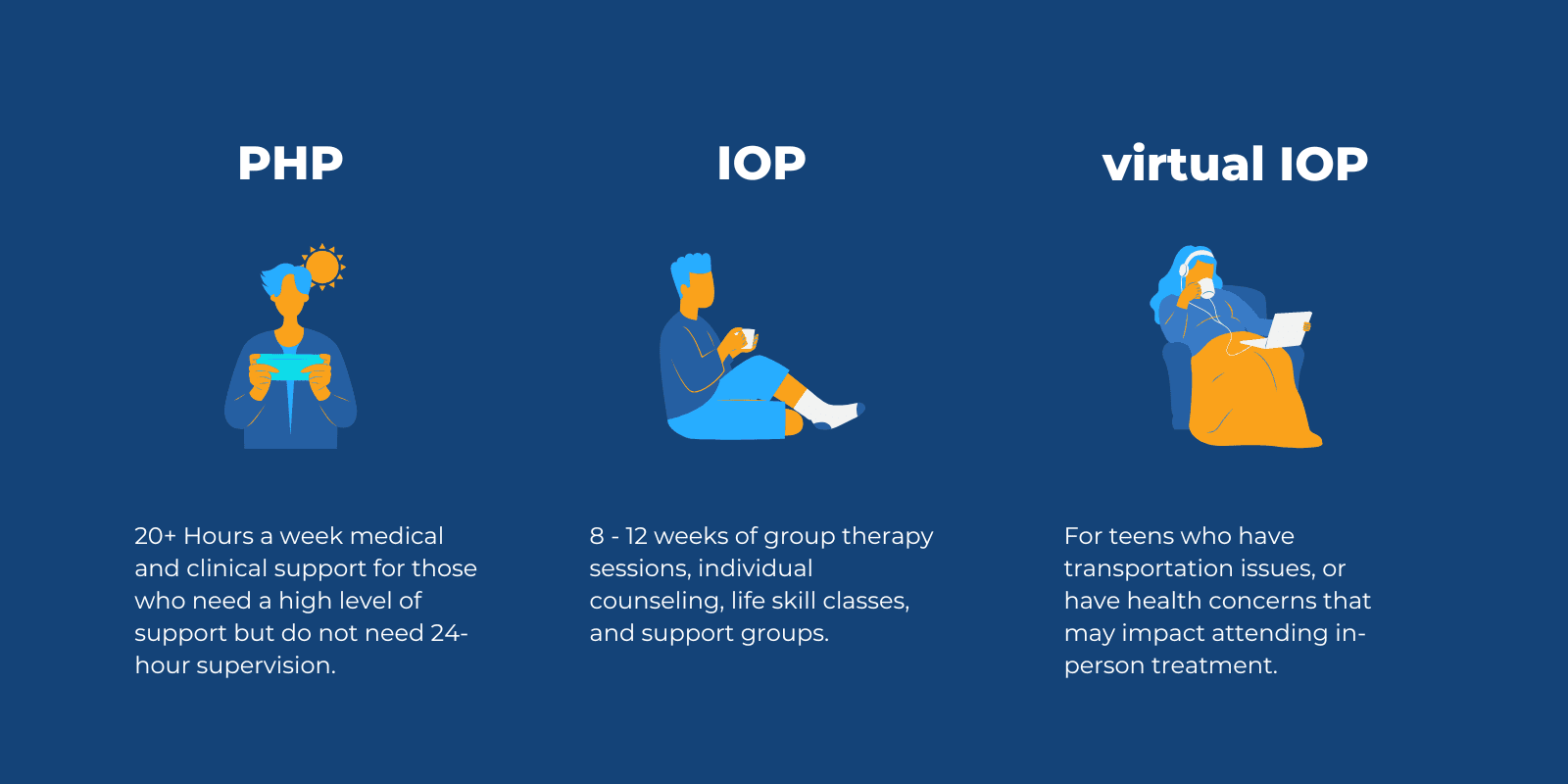
Every level of care has its own unique components, each serving its own purpose.
Intensive Outpatient Programs differ from Partial Hospitalization Programs in many areas.
For one, IOP is a step down from PHP. It is less intensive, requires fewer hours to attend, and is designed to be more flexible for those with commitments or responsibilities to keep up with while receiving treatment.
PHP offers more structure and is the level of care between residential treatment and IOP. PHP is generally more suitable for someone who needs a high level of structure and support, but not 24-hour care, and maybe recently left school or is transitioning between work and school.
When considering treatment options, a professional can work with you or your loved one to help decide what may be the most fitting.
Why Is Age-Specific Care Important In Mental Health Treatment?
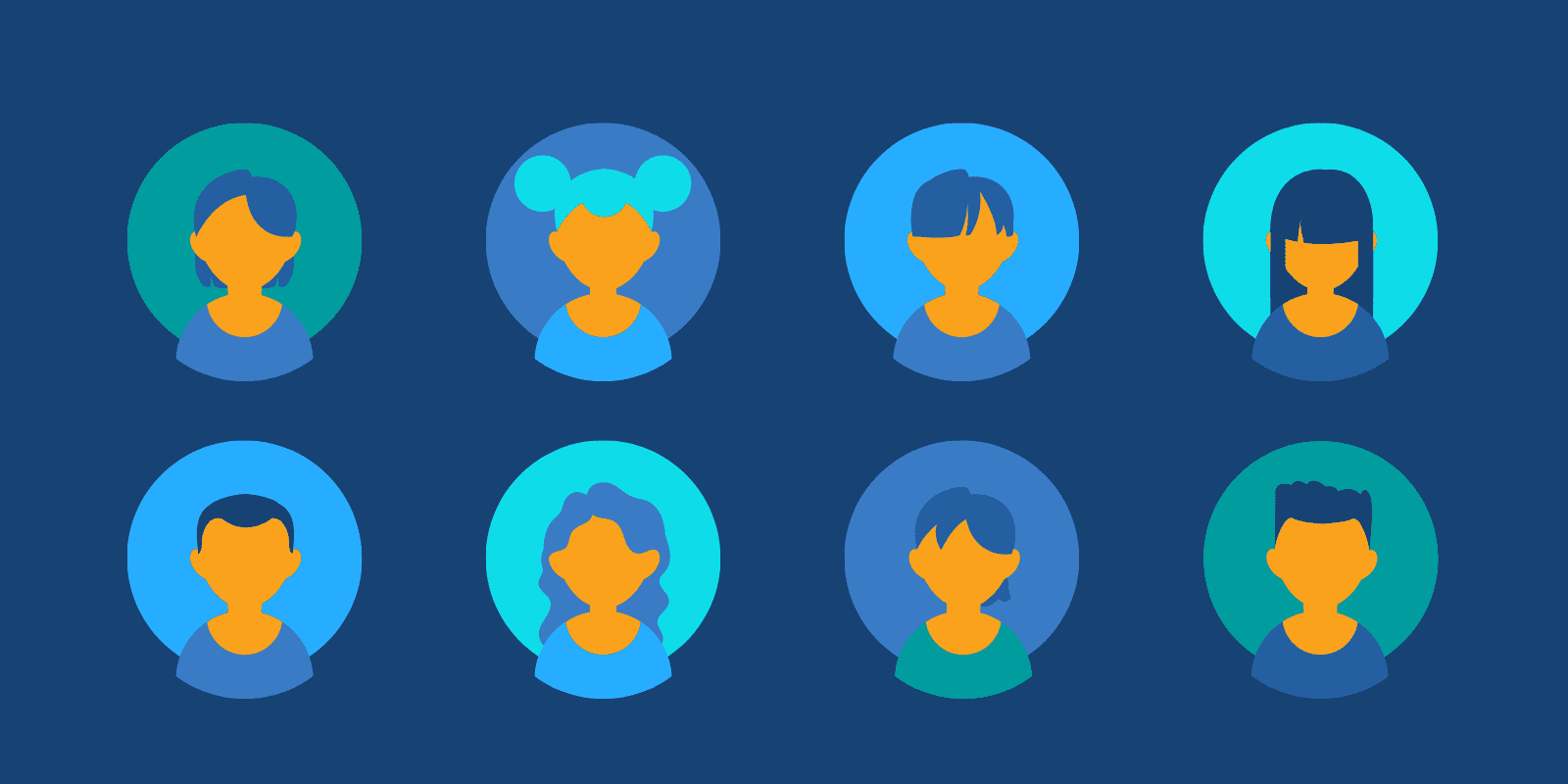
Each individual’s circumstances and needs are extremely unique.
Mental disorders and illnesses can affect people of all ages, from childhood, through adolescence and into adulthood.
Trying to apply the same exact treatment to people of all ages is inefficient and will likely not work out the best.
Some treatments may not be productive or appropriate for a child but may work great for an adult. People of all ages respond differently to treatments, so it is problematic to expect them to result in the same outcomes.
Age-specific care is so important in mental health treatment because it takes into account all of the factors that bring someone to treatment to help them get the most out of it.
For example, teens and young adults are going through major development physically, mentally, and emotionally. All the while, they face numerous challenges at school, at work, at home, and in their personal lives.
Because of all the factors that can come into play, it is important to take everything into account to provide the best treatment possible.
Every person’s situation is different, and it is important to provide care that is designed to fulfill the needs of each unique individual and consider important things like their background, history, development, and environment.
A good treatment center should provide age-specific, individualized care.
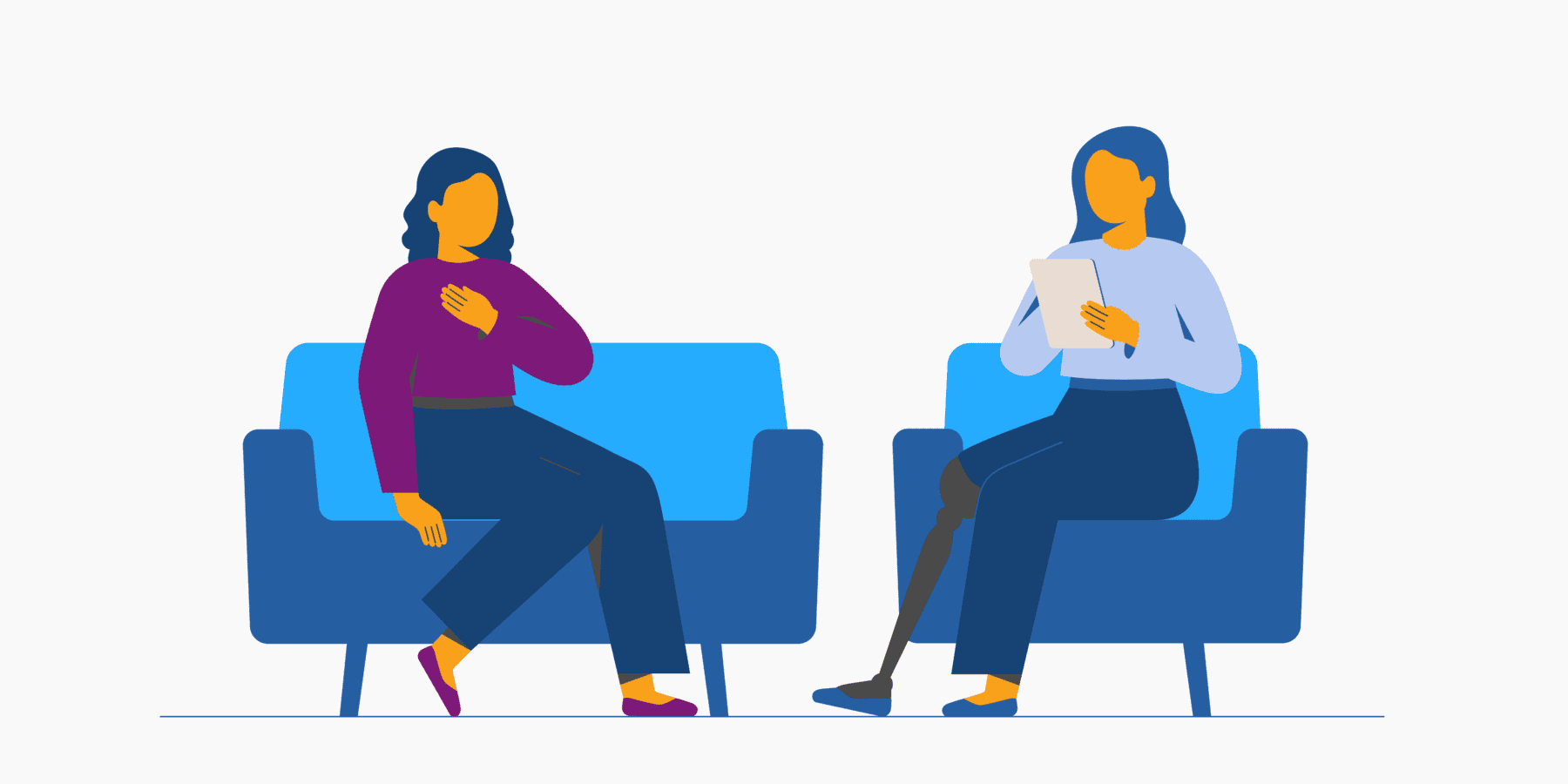
What Does Partial Hospitalization Program Mean In Counseling?
Partial Hospitalization Programs are a form of treatment for individuals struggling with mental health or substance abuse.
Someone attending counseling may be referred to a PHP if it fits their needs and they need structure and extra support.
Therapies commonly offered in PHPs include individual, group, family, academic, substance abuse, and many others.
What Does PHP Mean In Psychiatry?
When someone is struggling with a mental disorder or psychiatric disorder, PHP is the level of care available for individuals who need structure and support.
A psychiatrist, or mental health professional, can perform assessments to help determine whether PHP would be a good fit.
A psychiatrist can refer a person to PHP, and many programs offer psychiatric consultations as a part of their program schedule.
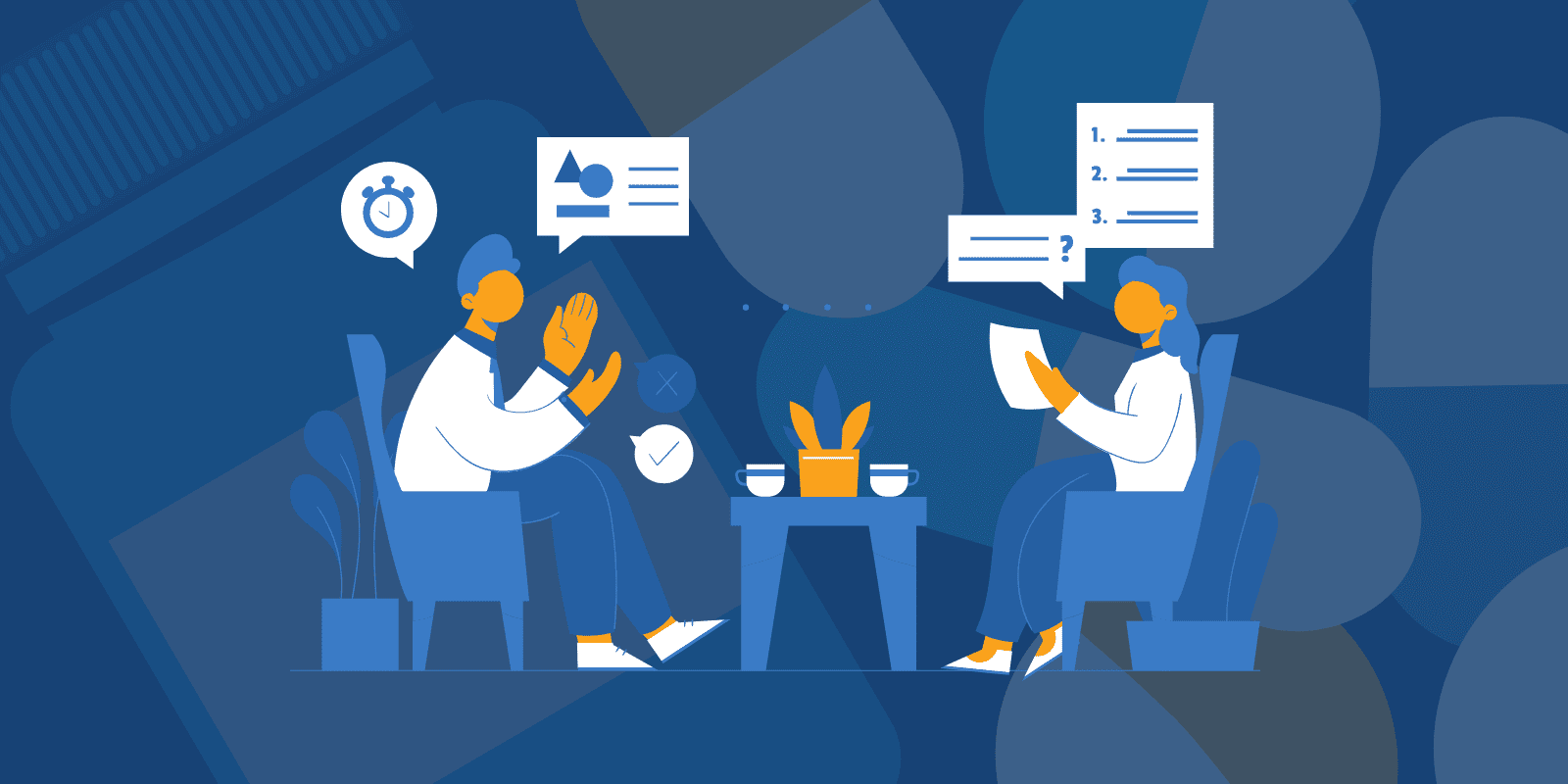
What Happens After Day Treatment?
Your treatment team will ensure to develop a thorough treatment plan that includes aftercare plans.
After day treatment, a person could either transition to another level of care like IOP or back to home life.
It may seem overwhelming to return to your normal daily life when day treatment is over. Support doesn’t just stop right when treatment is over. Transitioning out of PHP can feel challenging, but your support network is there to make the process easier.
It is completely normal and encouraged to ask for help after treatment.
How Can I Talk To My Friend Or Loved One About Seeking Mental Health Treatment?
Talking to a friend or loved one about seeking mental health treatment can feel daunting or uncomfortable.
One place to start is by educating yourself on mental health. The more you know, the better you can understand how to talk about it and how you can offer the best support.
When approaching someone seeking help for mental health, it is important to be relaxed and open, not confrontational or overwhelming. Don’t push them to share more than they want to.
Genuinely express your concerns, and avoid talking too much or overpouring information onto them.
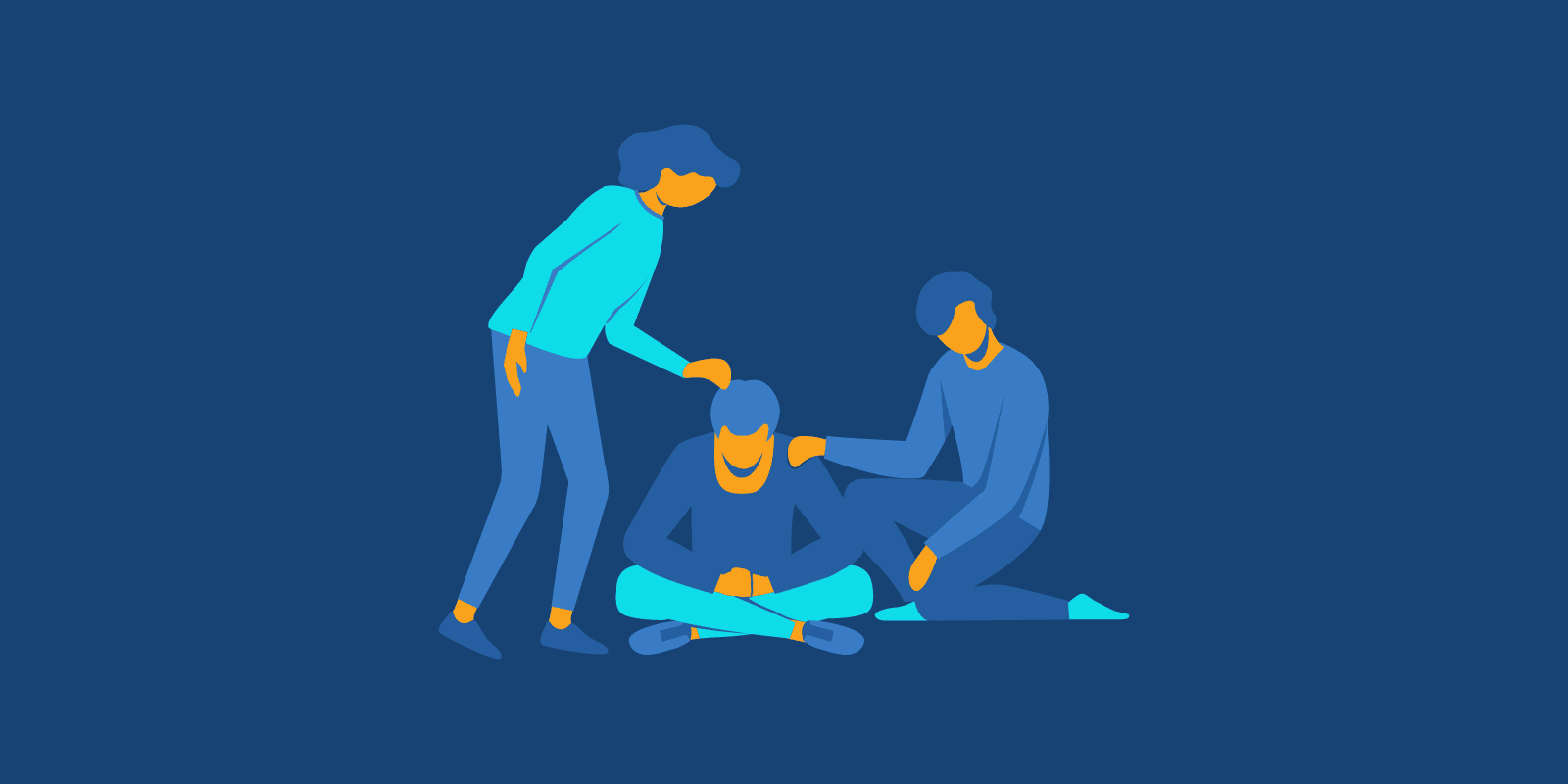
It can be difficult for someone to talk about mental health that may not be ready to talk about it or comfortable yet. Sometimes it can be hard to know how to respond to hearing you may need help, and that’s completely normal.
Sometimes people may need space and time to process information or figure out what they want to do. It is important to be respectful, a good listener, and offer them your support whenever they need it.
One of the most important things for someone struggling with mental health to know is that they are not alone and there is help out there.
How Can I Find A Mental Health PHP Near Me?
Sandstone Care has several treatment locations throughout the United States. Use our Location Finder to learn about the location nearest to you.
The Substance Abuse and Mental Health Services Administration has a treatment locator that can help you find help for substance use or mental health.
It is extremely helpful to reach out to different treatment centers to see what they offer and compare the options to find what fits best for you or a loved one.


Partial Hospitalization Programs (PHPs) provide a high level of care, structure, and support for individuals struggling with mental health conditions.
Sandstone Care is here to support teens and young adults with substance use and mental health disorders.


